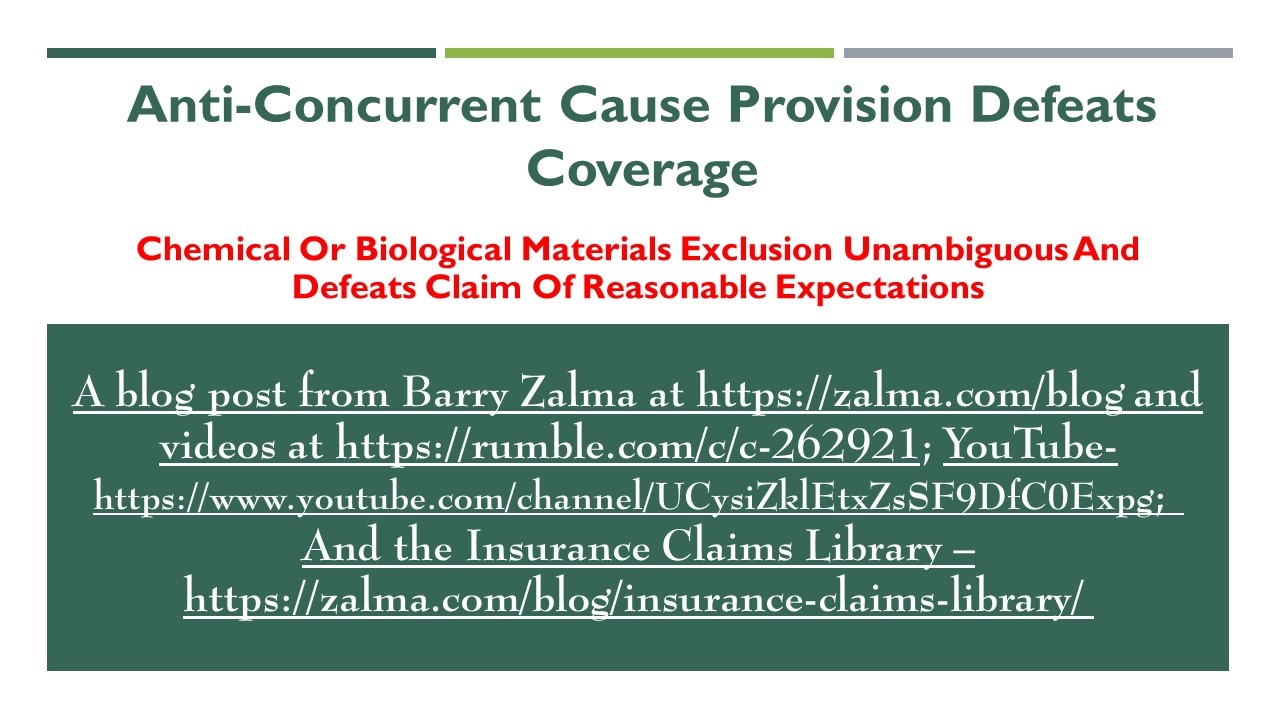Reasonable Expectations do not Defeat Clear and Unambiguous Policy Langugae
Posted 2021-02-19 14:13:04
0
3K

Sponsor
We are 100% funded for October.
Thanks to everyone who helped out. 🥰
Xephula monthly operating expenses for 2024 - Server: $143/month - Backup Software: $6/month - Object Storage: $6/month - SMTP Service: $10/month - Stripe Processing Fees: ~$10/month - Total: $175/month
Zoeken
Categorieën
- Art
- Causes
- Crafts
- Crime
- Dance
- Drinks
- Film
- Finance
- Fitness
- Food
- Spellen
- Gardening
- Health
- Home
- Literature
- Music
- Networking
- Paranormal
- Other
- Politics
- Bedrijvengids
- News
- Party
- Science
- Religion
- Shopping
- Sports
- SyFy
- Politically Incorrect
- Philosophy
- Theater
- Technology
- Wellness
Read More
Number of Occurrences
A Video Explaining What to Do When a Claim Includes Multiple Occurrences
Read the full article at...
A Polite Society
Read the Topic Story Here...
Oh…short and sweet. So, so sweet.
Can you imagine it? An...
A Video Explaining the Unintended Consequences of the Cumis Doctrine
Ethical Lawyers Should Not Take Advantage of Right to Independent Counsel
Read the full article...
True Crime of Insurance Fraud Video Number 60
My Paintings Were Stolen
Read the full article at https://lnkd.in/gnkSByzU and se the full video...




Read the full article at https://lnkd.in/gQHDiST and at https://zalma.com/blog plus more than 3600 posts.
Courts deal with claims from insureds that claim their reasonable expectations of coverage should supersede the policy wording when the clear and unambiguous language of the policy establish that the expectations of the insured are not reasonable nor correct. Over the 53 years I have worked in the insurance business I have asked hundreds, if not thousands, of individuals if they read and understood their policy. Only two answered in the affirmative — both lied.
In Lang Fur Farms, Inc., et al. v. Bird Island – Hawk Creek Mutual Ins. Co., A20-0683, Minnesota Court Of Appeals (February 8, 2021) insureds challenged the partial summary judgment granted to the insurer.
ZALMA OPINION
Not all states allow the concurrent cause analysis in first party claims like Minnesota, California, for example, that first stated the doctrine, has limited it to only apply to third party claims. People who acquire insurance should read it, or hire a professional risk manager to read it for them, to ascertain coverage.